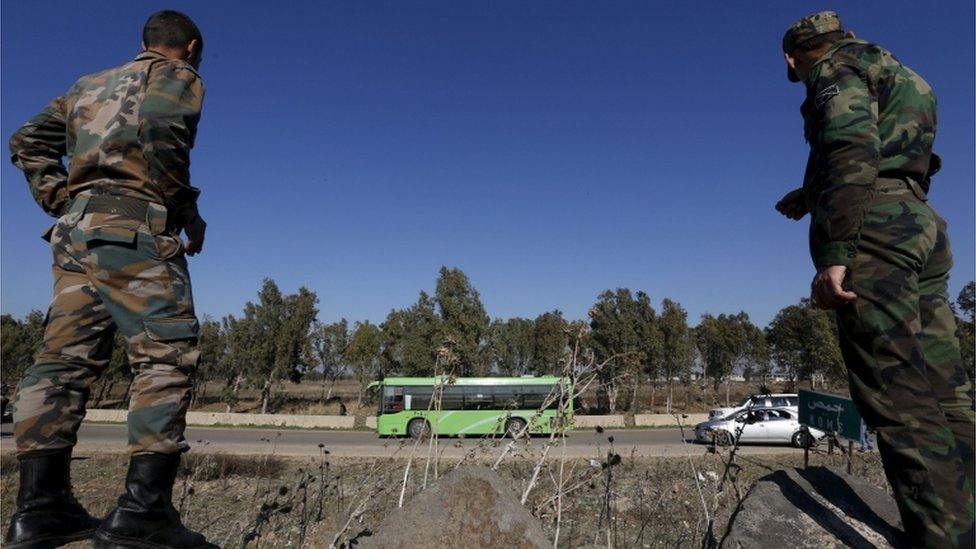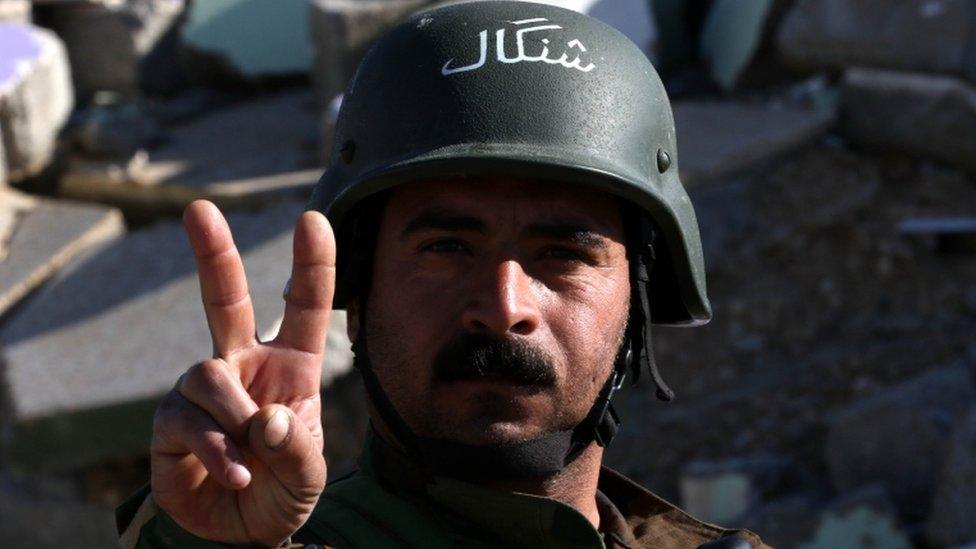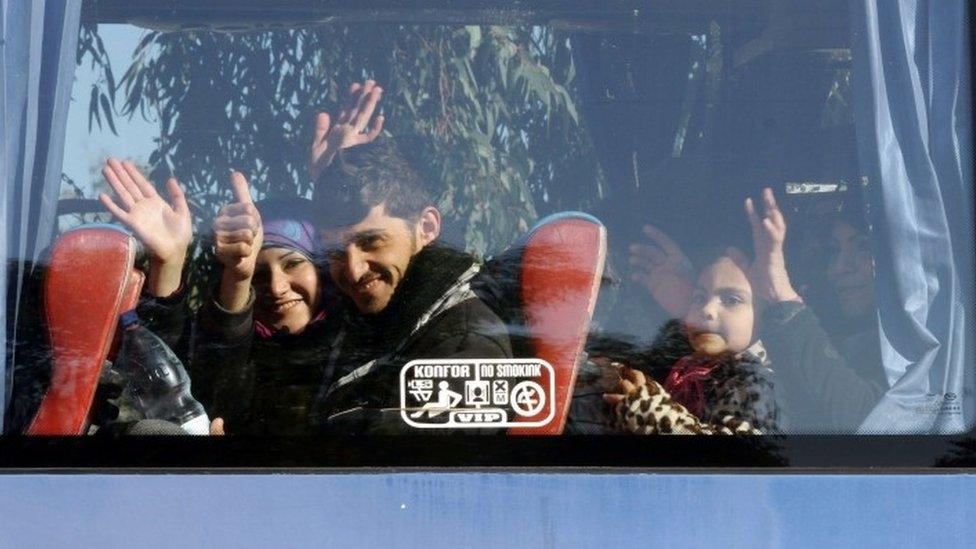West hopes moderates can rescue Syria
- Published
- comments

Rebel fighters have left Homs
The Syrian city seen as the capital of the revolution has fallen, by agreement, external.
Rebel fighters have agreed a ceasefire and will leave Homs to President Bashar al-Assad's tender mercies.
Yet in just a few weeks' time - by the New Year at the latest, external - President Assad is meant to be talking peace with some of the leaders who have suffered this reverse.
It doesn't seem very likely - not with Russian President Vladimir Putin behind him.
For its part, the fractured and disparate opposition wants President Assad not across the table but at least out of power and, better still, dead.
Like some sick version of a knockout league, the opposition is arguing, and in some cases fighting, among themselves about who should play-off against President Assad.
There is a conference in Saudi Arabia, external designed to sort this out. But some significant players are absent.
The Kurds aren't there, external, despite being, by most accounts, the most effective and efficient fighting force.
The jihadists aren't welcome, of course. The Western priority is to crush so-called Islamic State (IS) before there can be serious progress towards peace.
This determination is most often justified by the threat IS poses to Europe and the US.
But the British government argues it also directly relates to keeping alive a moderate opposition.
The rather mysterious force of 70,000 fighters talked about by David Cameron as "troops on the ground" morphs before our eyes into a vulnerable but essential group to be preserved.
I was watching a crucial but largely ignored Defence Committee meeting, external just before last week's Commons vote.

The Kurds have had some success fighting Islamic State
Defence Secretary Michael Fallon told the committee the 70,000 "are fighting Assad, and one of the reasons for us getting more involved in tacking Isil [a longer acronym for Islamic State] in Syria is so that they are not being squeezed by both sides".
The deputy chief of the defence staff, Lt Gen Gordon Messenger, helpfully spelt out the need to "preserve them as part of a future political process".
He added: "Nor are we saying they are ready to advance to Raqqa - but we are saying they are a really important group to preserve.
"Because we see them as being a vital part of the political process, critical to preserve to prevent Syria becoming a choice between Assad or Isil, so they are a very important part of the dynamic."
The West's hopes for an alternative Syria seem based on crossed fingers rather than serious analysis.
The survival of a moderate opposition may depend not on British bombs but Russian ones.
If Russia continues to target it, it will not be a force at the negotiating table, and there will be no real reason for President Assad to come to the table.
It is very unpalatable for the West, but President Putin's military intervention means he holds the key to Syria's future.
Syria, the US and the rest of the Western alliance hangs on his next move.

The Homs ceasefire
Is this a victory for President Bashar al-Assad?
The withdrawal of the last remaining rebels from al-Wair is a blow to the opposition because it gives the government complete control over what was once the centre of the uprising against the president.
Has it come about because of Russia's intervention?
The Syrian military launched an offensive on rebel-held areas outside Homs after Russia began its air campaign two months ago. But al-Wair fell because its residents were besieged for almost three years, coming under continuous and heavy bombardment and receiving only limited and irregular supplies.
Does this offer hope for a wider peace deal?
Local ceasefires such as the one that allowed the al-Wair withdrawal - negotiated by Syrians, rather than involving outside states - may be the most effective way of gradually bringing peace to the country.
Why are rebel and opposition factions meeting in Saudi Arabia?
Leading opposition politicians and rebels are for the first time meeting in an attempt to agree a common position ahead of peace talks with the government, which world powers want to start in Vienna next month.
Will those talks lead to peace talks with the government?
Analysts say trying to get the disparate factions to agree to the same platform and negotiate as one unit will prove very difficult, if not impossible.

- Published9 December 2015
